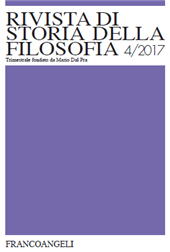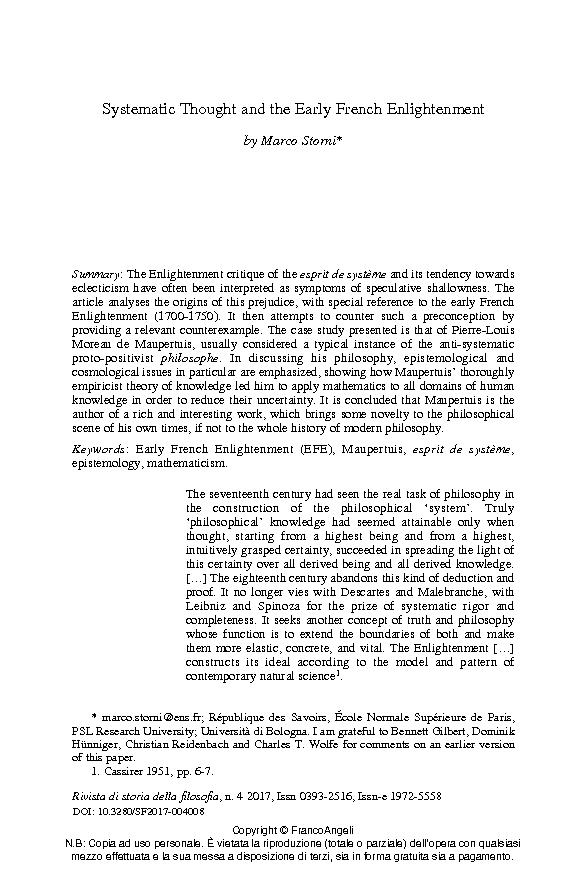Systematic Thought and the Early French Enlightenment
629-640 p.
The Enlightenment critique of the esprit de système and its tendency towards eclecticism have often been interpreted as symptoms of speculative shallowness. The article analyses the origins of this prejudice, with special reference to the early French Enlightenment (1700-1750). It then attempts to counter such a preconception by providing a relevant counterexample. The case study presented is that of Pierre-Louis Moreau de Maupertuis, usually considered a typical instance of the anti-systematic proto-positivist philosophe. In discussing his philosophy, epistemological and cosmological issues in particular are emphasized, showing how Maupertuis' thoroughly empiricist theory of knowledge led him to apply mathematics to all domains of human knowledge in order to reduce their uncertainty. It is concluded that Maupertuis is the author of a rich and interesting work, which brings some novelty to the philosophical scene of his own times, if not to the whole history of modern philosophy. [Publishers' text].
Ist Teil von
Rivista di storia della filosofia : LXXII, 4, 2017-
Artikel aus derselben Ausgabe (einzeln erhältlich)
-
Informationen
ISSN: 1972-5558
THEMENBEREICHE



